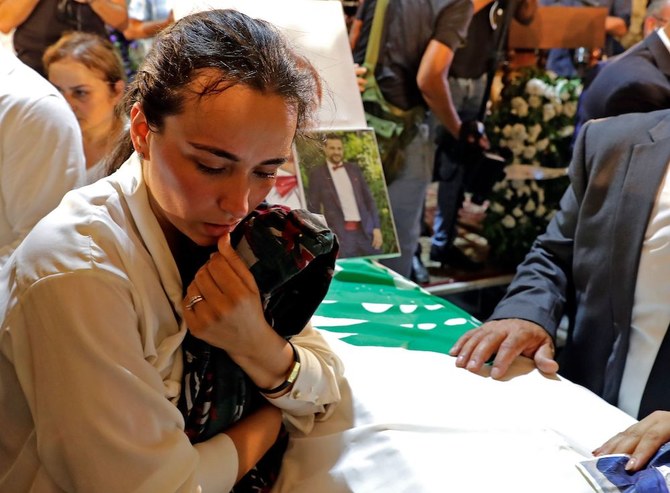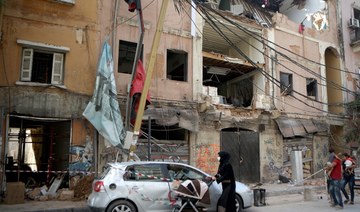BEIRUT: Lebanon is on the brink of a COVID-19 abyss, the country’s health minister warned following a surge in cases, as a two-week national lockdown was recommended to keep a grip on the virus.
The country recorded more than 500 new infections in 24 hours on Monday, with Health Minister Hamad Hassan saying that this number meant there were “2,500 or 5,000 undiagnosed cases” in addition to the diagnosed ones.
The total number of people infected with the disease has jumped since the first case was discovered in Lebanon on Feb. 21 to more than 9,000. There have been more than 104 deaths.
“Lebanon has reached the brink of an abyss,” said Hassan, calling on all citizens “to respect the preventive measures.”
The ministry’s monitoring process showed that the number of people who caught the infection from unidentified sources jumped to 1,684, whereas there were only a few such cases two weeks ago, making it difficult to pinpoint the source of the infection and control it.
The Medical Scientific Committee at the Ministry of Health recommended a two-week national lockdown to counter the spread of the coronavirus.
Hassan said that many of the new cases had resulted from the contact that took place during the transfer of thousands of people injured by the massive explosion at the Port of Beirut on Aug. 4. Symptoms of the disease began to appear in the wounded and their rescuers more than 10 days after the blast.
More than 2,700 tons of ammonium nitrate exploded in one of the port’s warehouses earlier this month. It destroyed homes and businesses, killed at least 170 people and injured at least 6,000.
Hassan said that intensive care beds in Beirut’s government and private hospitals were full, some of them due to injuries as a result of the port explosion. He asked the army to let the private hospitals that had not received coronavirus cases until now to receive such patients due to the state of emergency declared in the capital.
He stressed there was an obligation to wear a face mask because there was a lot of social interaction in all regions and “the painful explosion” had had direct repercussions on the pandemic and its spread, which was a “dangerous issue.”
Lebanon’s medical services are concerned because there are dozens of COVID-19 cases among healthcare staff and hospital employees. According to Ministry of Health data there are more than 407 infections among medical personnel.
Many hospitals are facing a shortage of doctors and nurses, while healthy doctors and nurses are trying to compensate for those who are absent because of quarantine.
Many municipalities have taken the decision to isolate neighborhoods in Beirut and villages and towns in the south, Mount Lebanon and the north in order to limit the spread of coronavirus after recording infections among the population.
North Lebanon’s governor, Ramzi Nohra, declared a state of health emergency in the cities of Tripoli and Mina. Public service institutions are working shifts to reduce the number of employees in official departments after infections spread.
Hassan said that the issue was no longer about paying a fine “but rather life or death."
"There is no longer any room for taking it lightly," he added. "We are not asking citizens for anything beyond their capacity. The two-week lockdown will allow medical teams to track down the infected people and their contacts, treat them and reduce the number of cases so that hospitals can absorb the number of infected people.”
Hassan was asked if the measures would include closing the airport.
He replied: “Although the number of cases among arrivals from abroad has decreased to two per thousand, and they do not pose a threat, it has been decided that all arrivals, including those with negative PCR results, must be committed to home quarantine for a week.”
















